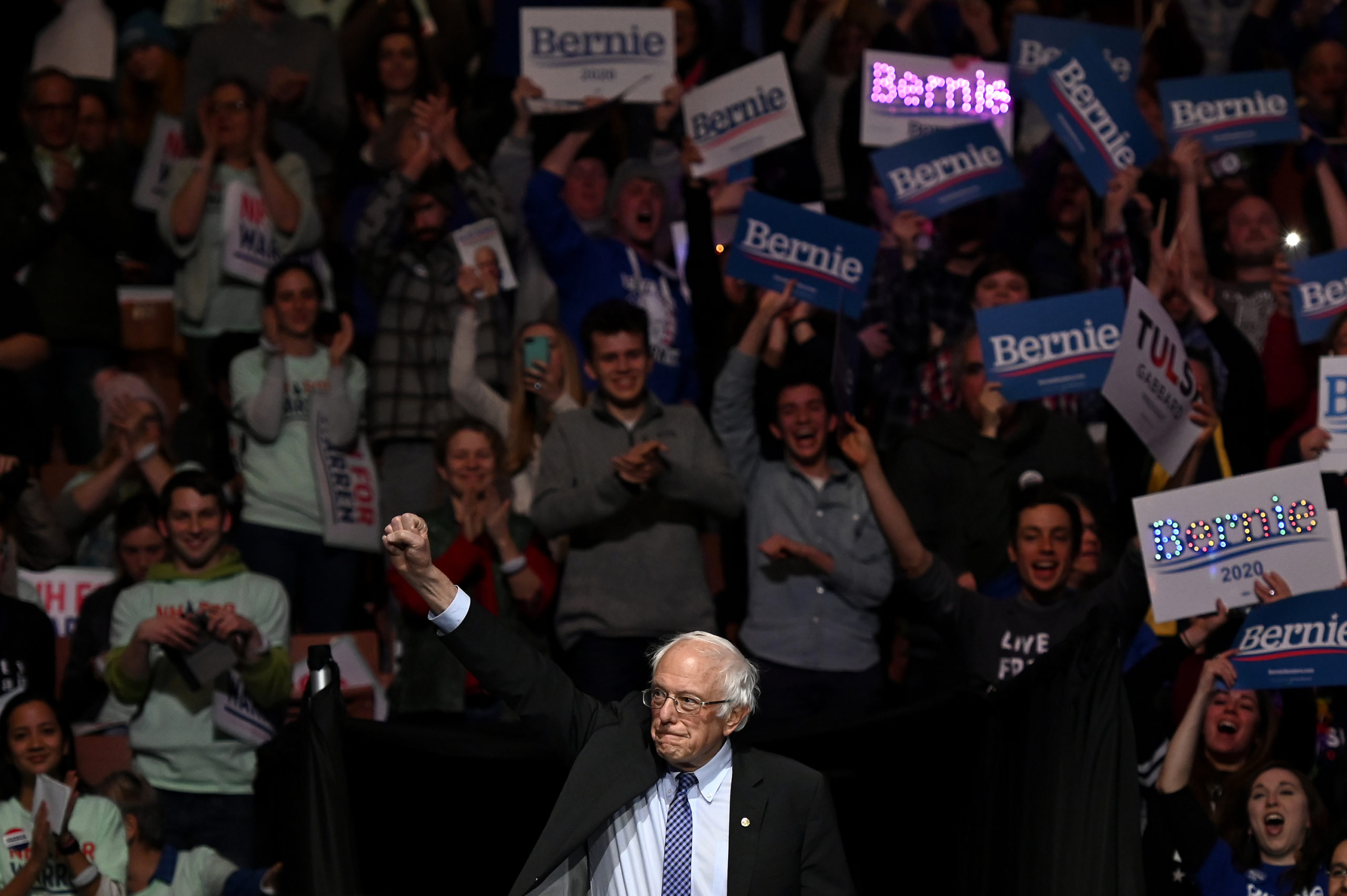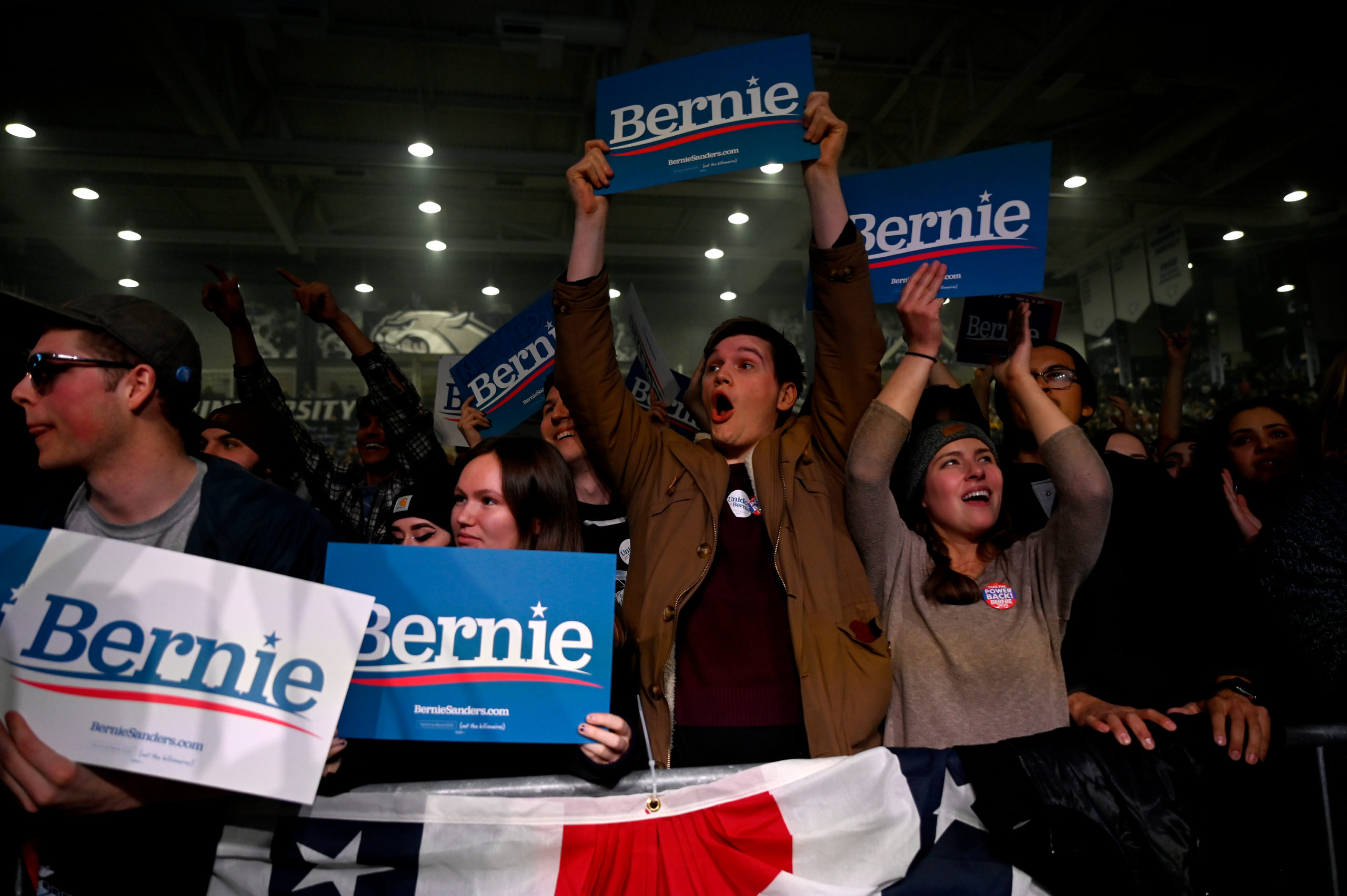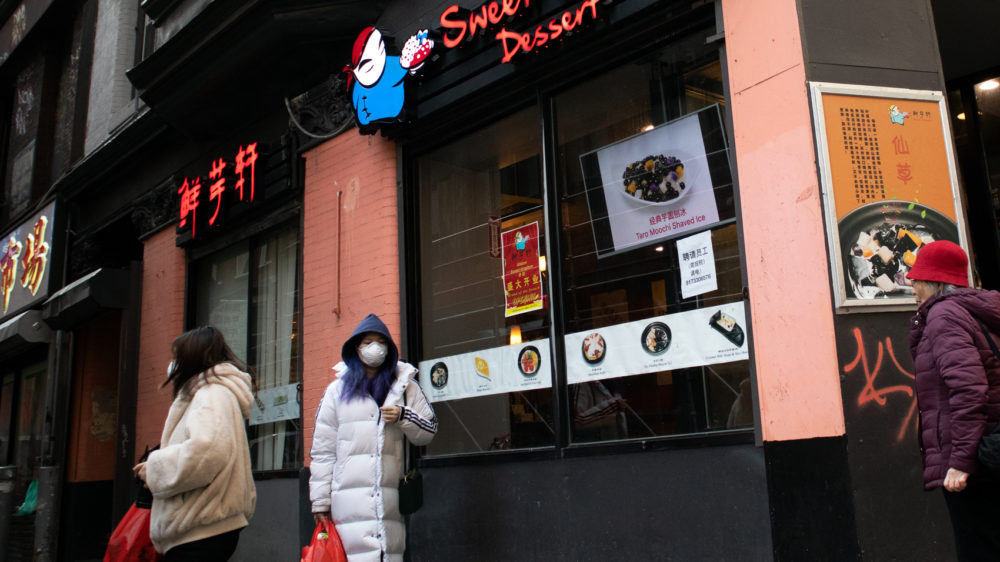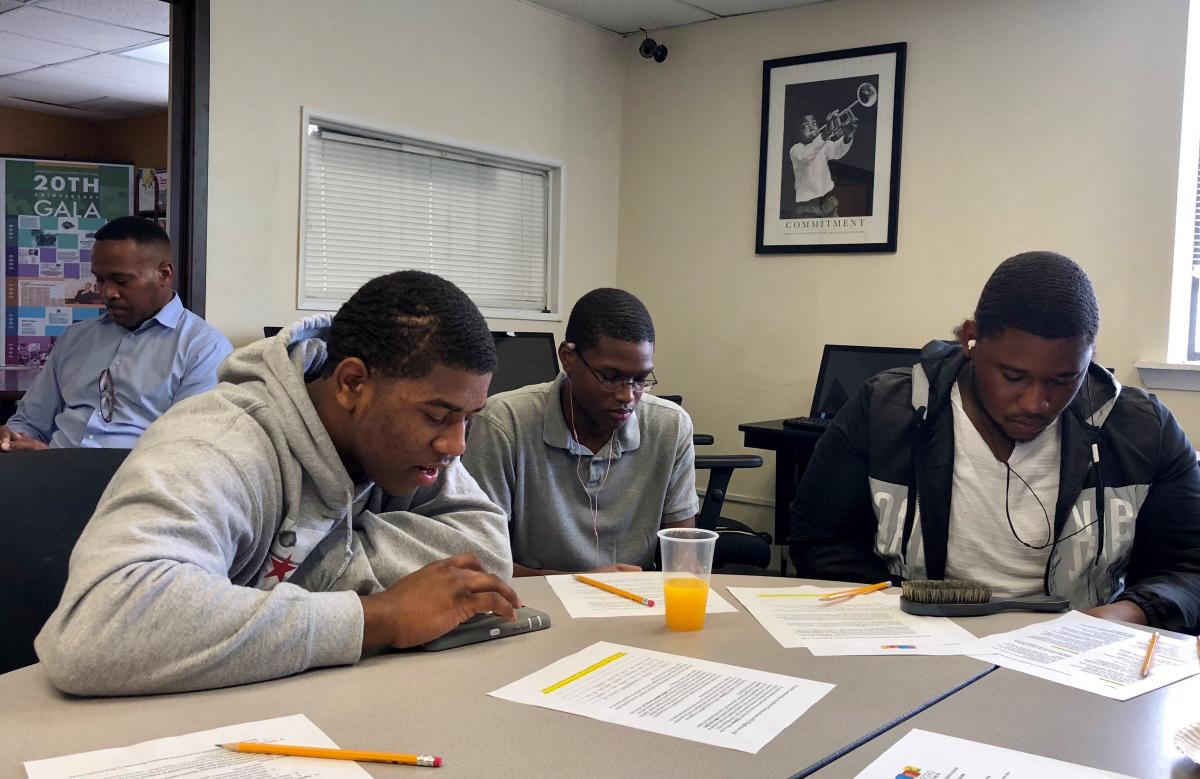Episode 185: Sanders Takes New Hampshire Primary; Coronavirus’ Economic Impact Felt In Boston’s Chinatown

Sen. Bernie Sanders (D-VT) takes the stage at the Southern New Hampshire University Arena on Feb. 8, 2020 in Manchester, New Hampshire. (Joe Amon / Connecticut Public / NENC)
The economic impact of the coronavirus outbreak in China is trickling down to Boston’s Chinatown. This week on NEXT, how unusually quiet restaurants point to ignorance — and possibly racism. And a Harvard study outlines the long-term health risks for gunshot survivors. Plus, we’ll recap the 2020 New Hampshire primary.
Sanders Secures Narrow Victory, Now Democratic Front-Runner

Supporters react at Vermont Sen. Bernie Sanders’ GOTV rally at the University of New Hampshire on Feb. 10, 2020 in Durham, New Hampshire. (Joe Amon / Connecticut Public / NENC)
The dwindling field of Democratic presidential candidates has left New England and moved on to Nevada and South Carolina. It was a tight race in the New Hampshire primary Tuesday, with Vermont Sen. Bernie Sanders taking the win, followed closely by former South Bend, Ind., Mayor Pete Buttigieg. Unlike in Iowa, New Hampshire’s voting went smoothly. You can see the full results here.
‘It’s Completely Empty’: Coronavirus Fears Take Toll On Boston Chinatown Businesses

On a recent afternoon in Chinatown, it was not uncommon to see people wearing face masks. (Adrian Ma / WBUR)
The outbreak of the coronavirus isn’t just having an economic impact in China, where it originated — it’s also affecting Boston’s Chinatown. Some restaurants in the district stand empty, which is unusual.
“After Chinese New Year, normally we are really busy,” said May Deng, a cashier at New Golden Gate Seafood.
Paul Watanabe, a political science professor and director of the Institute for Asian-American Studies at the University of Massachusetts in Boston, said because the virus took hold in China, some people are treating Asian Americans with intolerance, suspicion, and racism.
Gunshot Survivors Experience Significant Health Challenges After Release From Hospital

Tyrek Marquez, left, works with the Greater Hartford Youth Leadership Academy during a 2018 meeting at Hartford Communities That Care. Marquez survived being shot when he was 7. (Vanessa de la Torre / Connecticut Public Radio)
A new study from Brigham and Women’s Hospital in Boston found that gunshot survivors experience high rates of long-term health issues — higher rates than survivors of car crashes.
Tyrek Marquez was 7 when he was shot in the head by a stray bullet at a parade in Hartford, Conn. Marquez is now an 18-year-old college student and still feels the physical effects of the injury, as well as the trauma.
“Any crowded areas, like the mall the day after Christmas … where I feel like something’s going to happen, probably triggers me to that defense mode that I was in,” Marquez said.
Also On This Week’s Show:
- Boston Seeks More Regional Cooperation To Help Adults Who Are Homeless
- For Chronically Homeless Mainers, Housing First Can Be A Lifesaving Solution
- The One Who Came Back
About NEXT:
NEXT is produced at Connecticut Public Radio
Host/Producer: Morgan Springer
Executive Editor: Vanessa de la Torre
Senior Director: Catie Talarski
Contributors to this episode: Adrian Ma, Anthony Brooks, Ryan Lindsay, Lynn Jolicoeur, Nora Flaherty and Matt Frassica.
Music: Todd Merrell, “New England” by Goodnight Blue Moon, “Wanderer” by Francesca Blanchard, “Motherland” and “I Wanna Know” by Phat Astronaut and “Nowhere to Run” by Billy Wylder.
New to NEXT? You can find every episode or one you missed within our archives.
We want your feedback! Send critiques, suggestions, questions, and ideas to next@ctpublic.org. Help us spread the word! If you like what you hear, rate and review us on iTunes.
Follow us on Facebook and Twitter.
